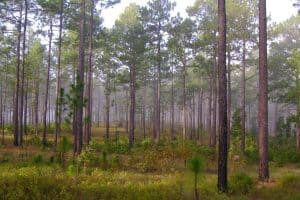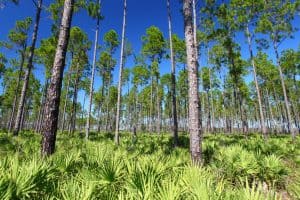Remember Neel Kashkari?
Here’s a hint: $700 billion. Here’s another: TARP.
Kashkari was the bald guy who handed out $400 billion to 540 banks and presided over another $50 billion intended to prevent foreclosures.
His color photograph was on the front page on my Sunday Washington Post, bridging the fold. This thirty-something who had once held western financial civilization in his hands was shown…splitting firewood.
The photographer is directly in front of the chunk of sugar pine about to be struck, in line with the arc of the ax head. It feels like Kashkari is about to split me in half.
Eli Goldston, a thoughtful energy company CEO I knew many years ago, was once asked what he did for exercise. He replied: “I split stocks.” Goldston died soon after at 53—a coronary, as I recall. His joke, unfortunately, was on himself.
So what was newsworthy about Kashkari doing the same sweaty-but-necessary chore that I — and many others — do every fall?
Why wasn’t my picture in the Post? I’m bald. I’m as 39 as Jack Benny was in his 60s. I hand out money right and left to banks.
Reporter Laura Blumenfeld explained that the former federal bail-out chief had ditched D.C. for an “off-the-map existence,” an exercise in “Washington detox.”
The pressure Kashkari experienced as Treasury Secretary Henry Paulson’s head of the new Office of Financial Stability was overwhelming. Both men felt the American banking system might fail if left to the free market, from which both had come and in which both believed. They didn’t want the market to correct mistakes of greed and bad judgment, which is what it’s supposed to be allowed to do.
In 1993, Deputy White House Counsel Vincent Foster killed himself. He, too, was in the Washington stress squeeze. His miseries arose from vetting judicial nominations and then handling aspects of Hillary Clinton’s Whitewater defense.
He told the graduating class at the University of Arkansas Law School just a few months before: “The reputation you develop for intellectual and ethical integrity will be your greatest asset or your worst enemy. You will be judged by your judgment. There is no victory, no advantage, no fee, no favor, which is worth even a blemish on your reputation for intellect and integrity. Dents to [your] reputation are irreparable.”
Vince Foster felt ethically dented by his work in D.C. His death was a loss.
Kashkari does not appear to have been ethically troubled by his work. He thought it important, and it was. His disenchantment came from not liking being yelled at, working with politicians and walking a high wire without a net.
So after helping with the Bush-Obama transition, the bail-out guy bailed out. He landed in a California post-and-beamer house at 6,500 feet with his wife and two Newfoundlands. He calls it a “cabin,” which is like the Newport society ladies calling their places, “cottages.”
Kashkari had no experience or knowledge that qualified him for his federal job. He had been a space engineer and then a tech-oriented banker at Goldman Sachs in San Francisco. He earned an MBA in 2002.
When Goldman CEO Paulson was tapped for Treasury in 2006, Kashkari, who did not know Paulson, asked whether he could go along as an assistant. In February, 2008, Kashkari was told to write a what-we-do-if-the-economy-melts-down plan. When the melting began a few months later, his was the only plan in town. And so, Kashkari got the job of making sure that certain chickens didn’t come home to roost in certain coops.
I think he performed pretty well at a job I think was flawed in concept. The banking system survives, not much changed. Mission accomplished.
The twist in the familiar story of go-to-Washington ambition is that once Kashkari got more power than he could have ever imagined, it left him poisoned, unhappy and fat.
I’m always interested in stories of urban refugees fleeing to the sticks in search of something more through something less. (Gwendolyn Bounds, The Wall Street Journal, “Green Acres Is the Place to Be,” December 2, 2009.)
Most of us, like Kashkari, go through times when we want to change where we are and what we’re doing. Tom Paxton’s 1964 song, “I Can’t Help But Wonder Where I’m Bound,” captured that moment of being betwixt and between.
I quickly crossed off folksinger from my might-be-bound list, because I carried each tune as badly as I played it. I learned later that these entrance requirements were often waived by the applicants themselves. Purposefulness can sometimes make up for lack of talent.
Individuals, like Kashkari, who have the ability to put specific destinations on their career travel lists, rather than just cross off the unpalatable ones, have a big advantage in getting wherever they might want to be.
Were I to sing Paxton’s song today, it would be less about uncertainty and more about being bound by mortgage payments and waist bands.
I was interested to learn that Paulson and Kashkari, both urban Midwesterners, found themselves grounded in land, though in different ways.
Paulson in private life was board chairman of The Nature Conservancy. At Goldman, he had the bank donate 680,000 acres of forestland on the Chilean side ofTierra del Fuego for conservation; some stockholders objected, as might be expected. He has given $100 million to conservation organizations and has pledged his estate toward those ends. Admirable behavior in my opinion.
Paulson thinks that the federal government should regulate carbon emissions to control warming but not investment banking practices to control systemic financial endangerment. He believes that individuals should be allowed to act freely in a market, but he also believes that public money should save the biggest financial institutions when they generate their own failures. It’s an intriguing mix.
Kashkari, on the other hand, sought a life patch by immersion into the woods. He said he needed silence, simplicity and small tasks with measurable right and wrongs.
He cleared his head through exercise and a construction project. He built a small, one-room shed, though he had nothing to store in it. He built for therapy, creating something tangible, regardless of need. Another intriguing mix.
Kashkari’s shed looks very much like the tiny cabin that Henry David Thoreau built from a dismembered chicken coop on land owned by Ralph Waldo Emerson in the mid-1840s.
Thoreau was trying to leave the “quiet desperation” of ordinary life. He was unsuccessful in most things he tried, including this escape.
After failing as a school teacher, he had to work in his father’s pencil factory and later as a live-in handyman for Emerson. His writings went largely unnoticed. He contracted tuberculosis as a Harvard student, never married (though he and his brother proposed to the same woman who rejected both) and died young.
Thoreau lasted two years in the outback of Concord. Kashkari appears to have thrown in the trowel after about six months.
Kashkari is about to become a managing director and head of “new investment initiatives” at PIMCO, a global investment-management company that oversees about $940 billion. It’s owned by Allianz SE, a German global financial conglomerate. PIMCO was involved in running the $1.25 trillion New York Fed’s purchase of mortgage-backed securities as well as other conceptual and practical aspects of the Paulson-Kashkari bail out.
Kashkari has returned to the platform from which he sprung. He told Blumenfeld that he didn’t care very much about his work at Goldman, though I’m sure he tried to do a good job. Once again, he’s running other people’s money, and, again, at a distance from personal consequences. No one at PIMCO will yell at him very much, and he will not be flogged on the Internet.
What, I wonder, does Neel Kashkari actually know about “new investment initiatives”? Is money to be made in shed building and dirt therapy?
Forests have always brought balance to anyone — good or bad — who spends time there. They are an ecumenical overload-reset button.
But they’re not transformative, as Thoreau and, perhaps, Kashkari learned. They can patch you up, but they don’t necessarily make you different.
This content may not be used or reproduced in any manner whatsoever, in part or in whole, without written permission of LANDTHINK. Use of this content without permission is a violation of federal copyright law. The articles, posts, comments, opinions and information provided by LANDTHINK are for informational and research purposes only and DOES NOT substitute or coincide with the advice of an attorney, accountant, real estate broker or any other licensed real estate professional. LANDTHINK strongly advises visitors and readers to seek their own professional guidance and advice related to buying, investing in or selling real estate.









He’ll be back. Right now he is addicted to $$$. It’s like drugs. After he gets strung out again, he’ll be back. Maybe this time to stay. He’ll certainly live longer out on God’s green earth.
Curtis: Thanks again for an insightful article. It’s funny, I’m in the comatose Atlanta real estate market and have thought seriously about moving back to South Georgia and splitting wood, hangin’ out in the woods of my youth, doing some hunting, and living the small town life. Maybe for clarity or escape but most likely for both.
I didn’t know about Thoreau’s career path. Recently, I tried to read Walden again and just lost interest (it feels embarrassing even admitting that).
Kashkari? Who knows? He might die young from stress or maybe go back to the woods like Mr. Hart mentioned. In this job market, at least it’s nice to be wanted……. espcially by someone like Pimco. Make more money, buy more land, a bigger “cabin”, more time for himself……..if he can do it without wrecking his health. Maybe he can.
Merry Christmas, John